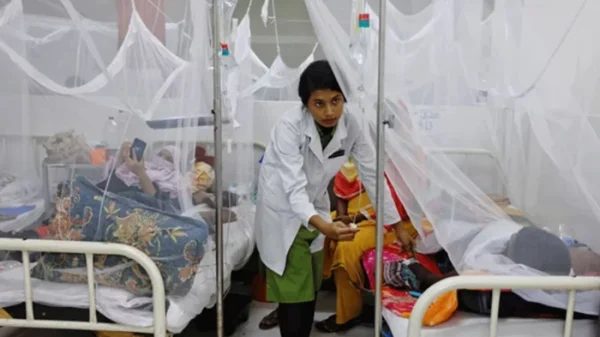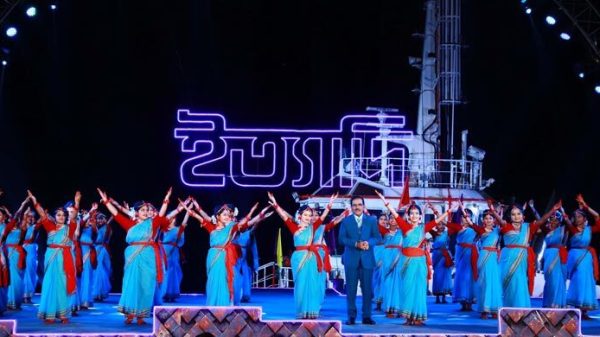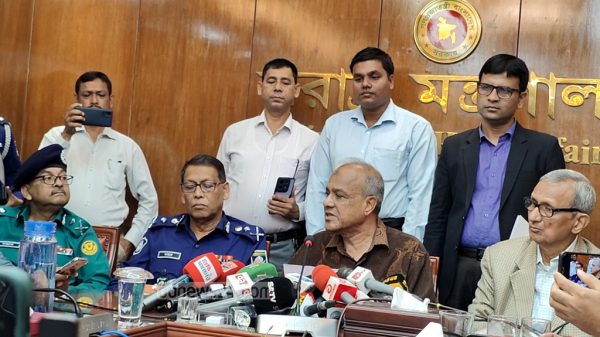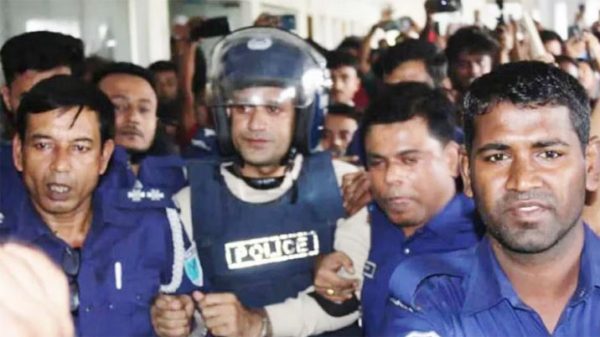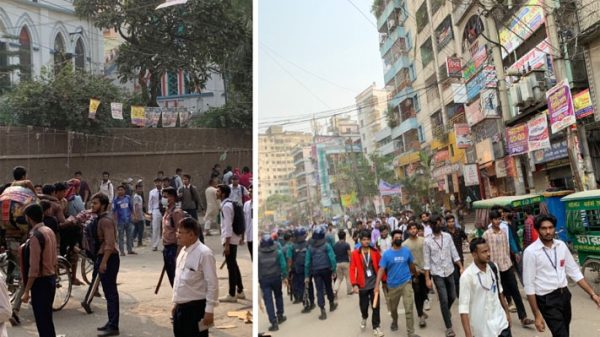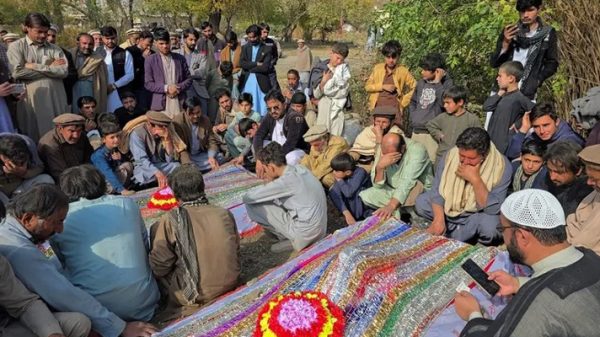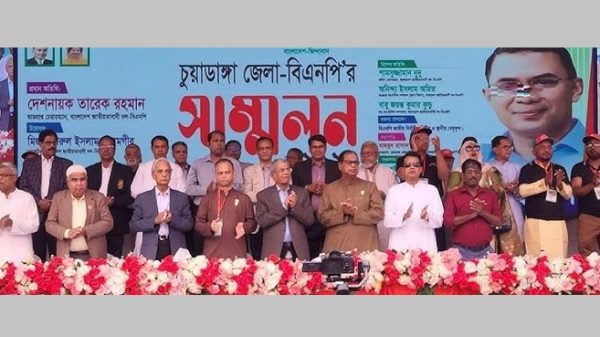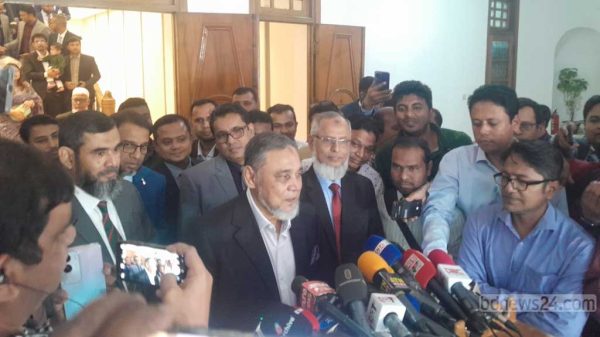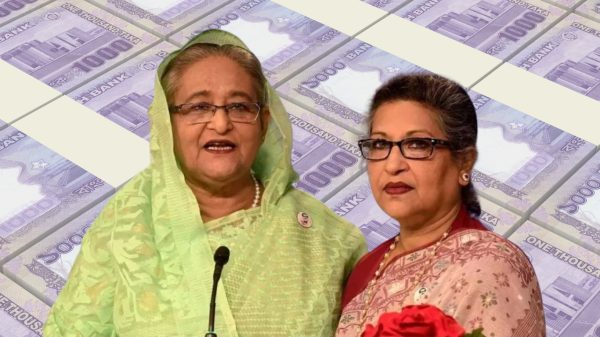Monday, 25 November 2024, 09:56 am
Headline :
HARC calls for action to end violence against sex workers in Bangladesh

- Update Time : Sunday, 8 September, 2024, 05:10 pm
- 48 Time View
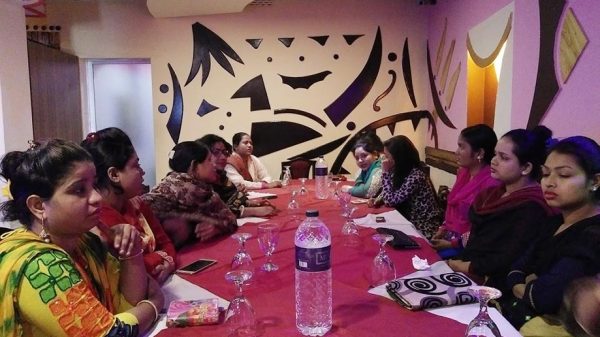
Habibur Rahman : In Bangladesh, sex workers face the force of economic anxiety as rates of domestic violence and sexual abuse increase. In communities across Bangladesh, the HIV/AIDS Resource and Welfare Center (HARC) is at the frontlines working to stem the rising rates of violence against sex working people. As sex workers living and working conditions continue to grow increasingly unsafe since the start of the COVID-19 crisis, more and more sex workers are turning to HARC resource teams, outreach workers, and our national crisis hotline in urgent need of safety, healthcare, and support.
With political, economic, and social responses to the COVID-19 pandemic abruptly forcing workers from their jobs and businesses to shutter, households across the country have been impacted by increased levels of financial insecurity, stress, anxiety, and frustration. For sex working people, due to the multiple, complex systems which target us with violence and oppression, our communities have experienced destabilizing levels of economic insecurity which severely compromises sex workers’ safety at home and at work.
Four years on, circumstances continue to demand that many sex working people remain in unsafe home environments and accept increasingly unsafe working conditions, fueling high rates of domestic, client, and police violence.
Key Factors Driving Violence Against Sex Workers
Every day, sex working people in Bangladesh are targeted with extreme levels of violence across all levels of society – in our neighborhoods, homes, workplaces, and public and institutional spaces. The force of multiple, severe systems of oppression impacts our communities through physical, sexual, economic, and psychological violence by intimate partners and family members, law enforcement, political and religious extremists, paramilitary organizations, and so-called ‘rescue’ groups who conduct violent, extra-legal raids on our places and locations of work.
Moreover, cruel practices of stigma and discrimination isolate sex working people from critical social support and prohibit our equal access to healthcare, justice, and educational opportunities. Critically, institutional and social impunity for violent crimes against sex working people confirms the widespread belief that sex workers may be targeted with violence without fear of investigation or consequence.
Pressures from the COVID-19 lockdown, associated rates of widespread unemployment, and the evolving global economic crisis only inflame these long-standing structural and cultural dynamics driving all forms of violence against sex workers (VASW). Shockingly, even the most extreme forms of VASW, including murder, go largely uninvestigated and, in some cases, unreported. Disturbingly, there are instances where perpetrators have even been praised for violent acts targeting sex workers.
Denial of justice for survivors of violence, and failure to ensure accountability of those responsible for victimizing sex working people amplifies the message communicated to perpetrators and victims alike that there will be no consequences for crimes of VASW.
HARC Fills the Gap: Data on VASW
HARC documents, closely monitors, and responds to the concerning situation of ever-increasing rates of violence against sex workers in Bangladesh.
Key obstacles to justice for sex worker victims of violence are due to a lack of documentation on the nature and rate of violence sex working people endure, and an absence of data-driven monitoring efforts critical to achieving accountability. Initiatives targeting sex worker issues too often fail to leverage evidence of human rights violations to advance advocacy for sex workers’ rights.
HARC is committed to filling this gap through comprehensive human rights documentation, monitoring and advocacy efforts which aim to:
-
Document, compile, systematize, and analyze cases of VASW for the purposes of evidence-based advocacy for sex workers’ rights
-
Incorporate data and findings into HARC’s violence prevention programming to increase sex workers’ knowledge of their civil, labor, health, and human rights
-
Illustrate the nature and magnitude of violence against sex working people and communities
-
Produce tools for community-based organizations (CBOs), non-governmental organizations (NGOs), government agencies and healthcare providers to implement evidence-based VASW prevention interventions which meet sex workers’ human rights standards
HARC has been implementing a comprehensive anti-VASW project in Bangladesh since 2017, documenting community reports of VASW and integrating data into advocacy strategies to meet the above objectives.
The following incident reports highlight key aspects of violence against sex workers and interconnected vulnerabilities documented by HARC outreach workers over the period of this project:
CASE ONE: “I thought I would die that night, I went unconscious just after calling my friend at HARC.”
Sathi is a 32-year-old sex worker living in Dhaka. Having moved to the city for work, Sathi has one son who stays with her parents in her native village.
Prior to the pandemic and Bangladesh’s economic crisis, both Sathi and her husband were employed, she as a sex worker and he as a transport worker. Since then, both struggled with unemployment and her husband’s daily drug use and “bera”, withdrawal symptoms, with rising tensions in the home often resulting in daily fighting.
On the evening of the 3rd of February 2022, Sathi was at home with her husband. At about 9:00 pm Sathi’s husband beat her severely on her head with a wooden spoon, causing serious injury, then left her bleeding in her room alone.
An active member of HARC, Sathi managed to call the outreach workers for help. The outreach worker rescued her from her room and took her to the hospital. Due to the extent of her head injury, Sathi was given a blood transfusion and was required to stay in the hospital for two nights, with multiple follow-up visits.
HARC provided Sathi with the financial support she needed to meet all hospital and medicine costs, as well as 20 days of relief for her recovery. On 7 March, once recovered, Sathi left Dhaka city for her native village. Not knowing what she will do once back in her village, Sathi only knows that with her parents’ support, she can get some food to survive.
CASE TWO: “Nobody loves sex workers; men just stay with us for sex and money”
Bobita is a 28-year-old sex worker living in Dhaka for about 7 years with her husband.
Pre-pandemic, Bobita’s husband ran his own small business but has since been forced to close due to economic problems. Having always told her husband she worked in a garment factory, Bobita told him it was also closed due to COVID-19. But, with her husband now at home, Bobita’s actual work has been negatively impacted as she finds it harder to leave the house to provide services without raising her husband’s suspicions.
Struggling under financial crisis, there was a lot of violence in the home. On the evening of the 25th of March, Bobita was on a long phone call with one of her regular clients when her husband became incredibly violent. Bobita’s husband beat her seriously, took a knife and stabbed her in the stomach. The knife entered about two inches inside of her belly, causing serious bleeding. Thinking he had killed her, Bobita’s husband left the house to avoid arrest.
After hearing the sound and loud cries, two neighbors came to check on Bobita, and she told them to call the HARC hotline. The HARC team rescued her and took her to the hospital. Initially the doctor refused to provide Bobita treatment, saying that doing so would interfere with a police case. As HARC has worked with this hospital in the past to establish a contract and positive working relationship, HARC team members were able to successfully advocate for the doctor to treat Bobita’s injury without alerting the police.
After two nights Bobita was well enough to be discharged from the hospital, but was required to continue treatment for about a month. Without food or money, Bobita received one month of HARC support to manage her treatment and food costs.
CASE THREE: “Nobody respects us as human; people treat us as bad girls and do anything they want to us.”
Jorina is a 35-year-old residence-based sex worker living in Dhaka with her two daughters.
With the economic crisis and fewer clients seeking her services, Jorina’s income decreased so significantly she could not manage to feed her family. Facing these circumstances, Jorina would not refuse any potential client. On 12th April 2022, a client called to hire Jorina, and the two arranged to meet in the market. Once both arrived at the agreed upon spot, the client led Jorina to an unfamiliar location where they were met by three more men.
The client and three other men locked Jorina in a room with them and proceeded to gang rape her through the night. She tried to escape, but was overpowered by all four men who beat her seriously. When she became sick from the physical trauma, the men continued assaulting her. Jorina was bleeding through the night and lost consciousness.
In the morning when she came to, Jorina realized was on the roadside and people were staring at her. She desperately asked for someone around her to call the HARC hotline, when a man helped her and called HARC. Within 2 hours the HARC team rescued Jorina and took her to the hospital, where she stayed two days to regain her strength. Once home, the HARC team provided Jorina emergency relief for her and her daughters’ survival.
CASE FOUR : “Five people raped me for a long period of time and refused to pay me; some people never consider us human.”
Moni is a 36-year-old sex worker in Dhaka. On the 30th of April 2022, Moni went with a client to his house. The client refused to pay and then called two friends to come to his house to rape Moni as well. These two men raped her and they then called another two men to come rape her as well. Loudly crying from pain, the men beat Moni severely to quiet her.
Gradually, an additional five more men came and began shouting at Moni, degrading her, saying they found a “bad girl”, and threatened to hand her over to the police. Moni was scared and called HARC outreach workers in distress. An outreach worker went to the client’s house and tried to explain she worked for HARC, and that Moni was also HARC staff. After 2 hours, the HARC outreach worker was finally able to get Moni out from that house and take her to the doctor for treatment.
CASE FIVE: “Police never help us; they always take money, rape us, and put us in jail”
Praya is a 38-year-old sex worker in Dhaka. On 5th May Praya went to meet an unknown client who had agreed to pay for her services. The unknown client was in truth a police officer posing as a client. He refused to pay Praya and took her directly to the police station. At the station, under police custody, three other officers raped her, and she was told she would be sent to court in the morning.
That night Praya called HARC outreach workers for help, explaining everything. In the morning outreach workers went to the police station to talk with the officer-in-charge. As a previous HARC advocacy project had begun building relationships with this police station, the officer-in-charge was familiar with the outreach workers. After a 30 minutes discussion, Praya was finally released.
CASE SIX: Shelpi is a 39-year-old sex worker and active drug user living in Dhaka.
On 20th June Shelpi went with a client to the client’s house. She was using drugs and could not remember what she did with the client, but the client called the police and Shelpi was put under arrest. She spent the night in custody where she was raped by two police officers.
The next morning the police sent Shelpi to court, filing drug distribution charges against her. Shelpi reached out to HARC for legal aid, and HARC’s lawyer represented her in court. It was a difficult case, as the issue of drugs was involved, however, as Shelpi had no drugs on her person she was released. The case is still ongoing, with Shelpi set to appear in one more court date and expecting to hear a final judgment in the next six months.
What Sex Workers Say: Take Action For Our Rights
Sex worker victims of violence are clear :
-
Police are responsible for ending police violence against sex workers, as well as working to reduce violence from society at large. Police must be involved as stakeholders in VASW response and prevention projects, and must be engaged in NGO advocacy initiatives
-
Sex workers must be empowered with information about our rights. Human rights training, legal literacy, capacity-building, and collective action are necessary initiatives to empower sex worker CBOs to prevent and respond to all forms of VASW
-
The government of Bangladesh must adopt and implement anti-violence policies which include and recognize sex work as work
-
Sex worker organizations, civil society actors, and NGOs must develop and implement advocacy strategies for the decriminalization of sex work and for evidence-based legal frameworks which protect sex workers’ rights
-
Law, policy, and law enforcement practice must be reformed to promote the health and safety of sex workers as outlined in recommendations of the Sex Worker Implementation Tool (SWIT)
HARC is a grassroots sex worker organization committed to realizing the right of sex workers to live free from all forms of violence. Based in Dhaka, HARC undertakes essential community-owned documentation, monitoring, and advocacy efforts; violence prevention and community protection programming; and responds to sex workers in crisis with urgency, care, and fortitude.
Habibur Rahman: Researcher and Social Activist
Facebook Comments Box
More News Of This Category

